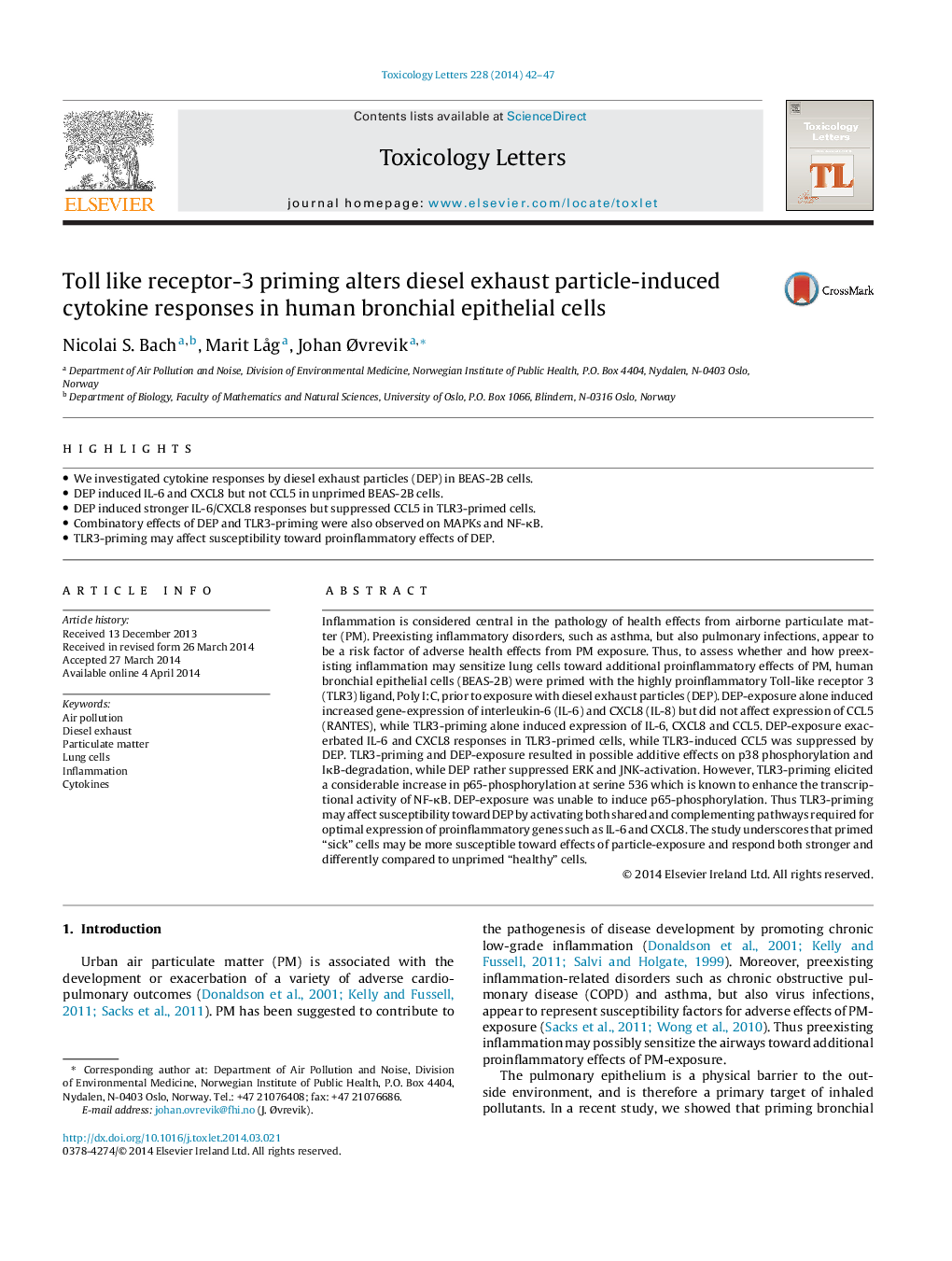| کد مقاله | کد نشریه | سال انتشار | مقاله انگلیسی | نسخه تمام متن |
|---|---|---|---|---|
| 2598914 | 1133167 | 2014 | 6 صفحه PDF | دانلود رایگان |
• We investigated cytokine responses by diesel exhaust particles (DEP) in BEAS-2B cells.
• DEP induced IL-6 and CXCL8 but not CCL5 in unprimed BEAS-2B cells.
• DEP induced stronger IL-6/CXCL8 responses but suppressed CCL5 in TLR3-primed cells.
• Combinatory effects of DEP and TLR3-priming were also observed on MAPKs and NF-κB.
• TLR3-priming may affect susceptibility toward proinflammatory effects of DEP.
Inflammation is considered central in the pathology of health effects from airborne particulate matter (PM). Preexisting inflammatory disorders, such as asthma, but also pulmonary infections, appear to be a risk factor of adverse health effects from PM exposure. Thus, to assess whether and how preexisting inflammation may sensitize lung cells toward additional proinflammatory effects of PM, human bronchial epithelial cells (BEAS-2B) were primed with the highly proinflammatory Toll-like receptor 3 (TLR3) ligand, Poly I:C, prior to exposure with diesel exhaust particles (DEP). DEP-exposure alone induced increased gene-expression of interleukin-6 (IL-6) and CXCL8 (IL-8) but did not affect expression of CCL5 (RANTES), while TLR3-priming alone induced expression of IL-6, CXCL8 and CCL5. DEP-exposure exacerbated IL-6 and CXCL8 responses in TLR3-primed cells, while TLR3-induced CCL5 was suppressed by DEP. TLR3-priming and DEP-exposure resulted in possible additive effects on p38 phosphorylation and IκB-degradation, while DEP rather suppressed ERK and JNK-activation. However, TLR3-priming elicited a considerable increase in p65-phosphorylation at serine 536 which is known to enhance the transcriptional activity of NF-κB. DEP-exposure was unable to induce p65-phosphorylation. Thus TLR3-priming may affect susceptibility toward DEP by activating both shared and complementing pathways required for optimal expression of proinflammatory genes such as IL-6 and CXCL8. The study underscores that primed “sick” cells may be more susceptible toward effects of particle-exposure and respond both stronger and differently compared to unprimed “healthy” cells.
Journal: Toxicology Letters - Volume 228, Issue 1, 3 July 2014, Pages 42–47
